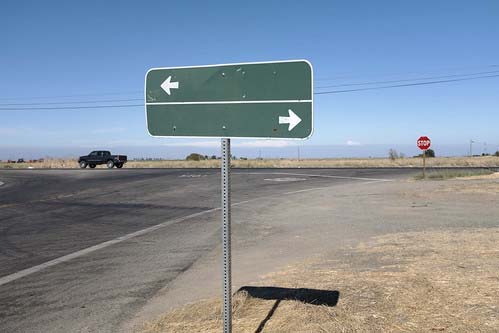Making Choices at Demanding Times in Your Life

Making choices can be easy and pleasant, or can take us through some of the hardest parts of our life journey.

It often happens that we end up having to make major choices during the most demanding parts of our lives, which are sometimes called major life transitions. In fact, it may be the need to make a particularly important choice that actually creates a major life transition!
Sometimes choices are easy, but when they’re about things that are really important, they are often hard. When the choice is about something really demanding, often life is asking us who we really are.
I can recall one really difficult choice in my own life journey. It was a choice made in my very early 30s. I can truly say that it was a choice that determined which of two substantially different versions of being myself I was going to live out, for the rest of my life. After I had made it, I truly felt that I was somebody different than I was before i made it, much as Robert Frost wrote in those famous lines:
Two roads diverged in a wood, and I—
Robert Frost, The Road Not Taken
I took the one less traveled by,
And that has made all the difference.
When I Have to Choose
When we have to choose, and we sense that this choice is going to “make all the difference”, what are some of the most important types of decisions that we as people make? Well, this is far from exhaustive, but here’s a list of some typical major decisions in life:
- to return to university for an advanced degree;
- to stay with my career, or start my own business;
- to get married;
- to leave a marriage;
- to have children;
- to not have children; or,
- to retire.
I’m sure that you could add many items to the list. What are some of the things that go on inside of us when we have to make these kinds of choices?
Well, one thing that is often present is that we are keenly aware of the things that we might get with each respective choice that we make, and we are simultaneously aware of what it is that we might lose. Often, we are also very keenly aware of what we know about making this choice, and also what we don’t know. And sometimes we’re keenly aware that we don’t know what we don’t know — that there are great gaps in our knowledge.
We may look at the issue from a very logical perspective, and that can be a very important thing to do. Yet there’s often a great deal more to a decision than that. Sometimes it can be very important to listen to our intuition, or “hunches”. Or we may have very strong feelings about the choice options. It may also be that our conscience or morality is trying to speak to us: if so, it can be essential to listen, for the sake of our long-term peace and well-being.
As we examine this, we pretty soon start to see that a very major decision is a very complex, very delicate thing. And it’s often all bound up in some very important ways with who we really are.
What Makes Choices Worse
What would make a choice dramatically worse would be to approach it in an unconscious way. “Now, that sounds just silly.” you may be saying, “How can you be unconscious, if you’re making a choice?” The answer is that consciousness is not black-or-white, on-or-off, but a matter of degree or level.
It’s possible to go through a decision-making process but still to not listen to large and very important parts of ourselves. This can happen in many different ways. Perhaps we’re meeting the expectations of someone else who wouldn’t like it if we brought certain thoughts or feelings into our decision-making. Or, perhaps it might be as straightforward as an incident recounted by Jungian analyst James Hollis:
In speaking of these matters in a public setting recently, someone said, “Why should I bother to think about these things?” “Well, because perhaps you are living someone else’s story if you do not,” I replied. “What does that matter if I’m happy?” she retorted…. I [had] the lingering impression that she did not want to work very hard at this identity stuff. I also know that our psyches will not be mocked and that somewhere deep within something profound gets wounded and ultimately reaches the surface as symptom, projection, obsession….
James Hollis, What Matters Most
Clinical experience tends to support what Hollis says about unconscious decisions. It’s astounding how much time people spend in therapy talking about fallout from previous bad decisions. It’s well worth it to be as aware as we can when we face those major times of choice.
Life-Giving Decisions
It’s possible to make decisions that treat us well as we move into the future. These tend to be honest decisions where we bring all of our feelings, our intuition and our thoughts into making choices, and also where we don’t get sidetracked or bogged down with small issues, or our own past baggage.
Depth case studies can be a vital support as individuals go through the process of making choices involving key life issues. The safe container provided by this kind of therapy enables us to look at all the factors, conscious and unconscious that go into making the decisions that are so fundamental to our journey toward wholeness.
